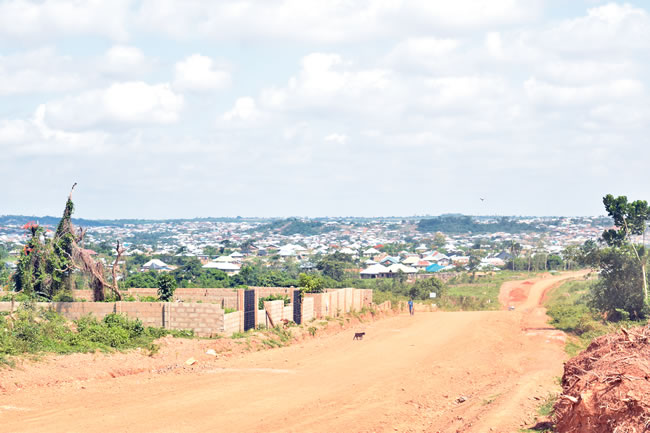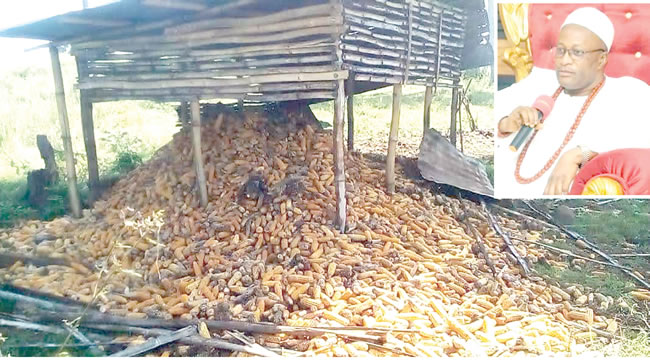
In the last few days, the fear of fuel scarcity due to a threat of industrial action by fuel marketers has been hovering like a heavy cloud about to give way to rainstorm on the Nigerian horizon. And this scare continues to be a source of concern to almost everybody irrespective of professional affiliation as the average Nigerian is conscious of the unfriendly effect of fuel scarcity on daily living; long queue at fuel stations, hike in price of petroleum products, panic buying, infiltration of adulterated fuel at black markets as well as skyrocketing price of goods and services amidst other challenges.
Indeed, Nigeria has over the years had a checkered history in terms of fuel supply and prices; scarcity has been a perennial problem in the Nigerian society and the dependence on petroleum products is on an all time high. This over dependence and high demand has led to people especially in the developed societies, seeking for alternatives to the popular fossil fuel which used to be the black gold.
And in the history of Africa, there has not been any major move to produce biofuel from waste. But now, Nigeria is set to blaze the trail as the novel project to create an alternative source to fossil fuel in order to reduce the pressure and high demand for petroleum products that sometimes lead to a shortfall of supply to demand, scarcity and hike in price will the preliminary operations in the South-western part of the country.
The project is the production of biofuel as an alternative to the common petroleum products. And in the next nine months, biofuel will be produced on a commercial scale in Ibadan or Lagos. All over the world, biofuel is gaining great awareness especially in the scientific circle due to certain factors, predominant of which is hike in price of petroleum products. Other factors include increased advocacy for increased energy security and pollution as a result of emission from fossil fuel.
The liquid fuel that will be produced in South-west Nigeria will be processed from plastic wastes that have been found to abound in Nigeria, simply put; liquid fuel will be processed from low grade plastic rich waste products.
The project is the result of collaboration between three organizations; WestAfricaENRG, the company saddled with the responsibility of managing waste in Oyo and Lagos states, Cranfield University in the United Kingdom and Syngas products. This collaborative effort investigates recovering valuable chemicals from plastic containing waste streams through advanced thermal conversion for use as liquid fuels and for use as base chemicals in manufacturing industries while it also proffers a community level solution to waste management.
In the Nigerian community, power supply is unreliable and often, individuals supply their own power through generators and incur huge expenses on fuel as primary source of power generation and WestAfricaENRG has been found to be capable of the advanced thermal treatment to produce high quality liquid fuel as it already has a 280, 000tpa Material Recovery Facility (MRF) in Lagos, the facility is the first MRF in Nigeria.
The company expresses optimism that with the level of plastic waste being generated, their thermal heat plant once it commences full operation will produce waste pyrolysis of an output that would provide greener fuel for people and reduce dependence on fossil fuels while adding to the development of MRF that operates in Nigeria.

At this location, there is a full scale waste to wealth process ongoing and the initial stage of the wealth to energy project. Taking Nigerian Tribune round the factory, the Office Manager, Olaoluwa Olawe, stated that every part of waste could be useful; both biodegradable and non biodegradable.
He explained that there are recyclable materials and non recyclable materials, adding that glass bottles are recycled to make mirrors, drink can recycled into iron sheets, pet bottles recycled into cotton for clothing, paper recycled to produce toilet roll while black nylon is used for diesel energy.
Olawe explained that the system of waste processing is simply to sort out useful materials from waste as waste has different components. He added that the first thing they do when the waste truck arrives is to weigh it on the weigh bridge after which it will deposit its contents and go for a second weight reading to ascertain exact tonnes of waste that was brought in.
The waste is processed through the MRF machine which the company has in three divisions with the help of a back hoe that pushes the waste products onto the escalator of the MRF machine. The waste comes out in three forms; the fine stock pile that is less than 40millimeters, the fine ground waste that comes out in form of the trammel sieve and the products beyond 40 millimeters go through the scrapper chain where sorters pick recyclable materials that are packed in tonnes for manufacturing companies while the remaining goes to a dump for onward transmission to the landfill.
The fine sand from waste product according to Olawe, can be used as a fertilizer or for construction purposes and is of great economic value. He added that methane gas comes out as smoke during waste processing and if it is trapped, it can be converted to electricity.
The waste to energy is however in two forms; waste to electricity and waste to fuel both of which will actually make life easier for Nigerians. However, the present project is about fuel and not the process of converting waste to electricity because it is not feasible at present in Nigeria based on cost and logistics.
Explaining the reason for this, the Chief Executive Officer of WestAfricaENRG, Paul O’Callaghan, confirmed to Nigerian Tribune that there are two forms of converting waste to energy. According to him, “there are two types of converting waste to energy; there is the waste to electricity but we are not working on that because the challenge at present is that the cost of electricity is quite low, so getting electricity from waste through the incineration process to steam is quite expensive, where it works is where I have to pay someone to take my waste away for me to generate electricity but that doesn’t work in Nigeria. But technology wise, it is absolutely possible.
“Our own project is not about electricity, we are sorting plastics to produce biofuel. What we will do is to heat the plastic at very high temperature, then, we will refine the liquid products to make kerosene, diesel and petroleum that would be sold on a commercial scale. That is very feasible in Nigeria,” Callaghan stated.
Speaking on how far the project has gone and when the commercial stage will start, he stated that, “the stage we are now is waste characterization like you saw today. We have done waste characterization in UK and Nigeria; we compare the different types of waste in UK and Nigeria. We already have a prototype system already in the UK but it is not commercial yet. But with our partners; Cranfield University and Syngas products, I can assure you that it can and will be done on a commercial scale in Nigeria.
“We haven’t gotten to that but within the next eight to nine months, we will be out with the commercial stage; the beauty of Nigeria is that we have a very high level of plastic wastes much higher than in the UK.”
And where will the factory for production of biofuel be located, it is definitely in a Southwest state according to Callaghan. “It will be in a state where the government gives us favourable options but definitely, it will be a densely populated area; that is where the market is. It will either be Ibadan or Lagos.”
Also Read: E-waste can no longer be ignored in Nigeria, says environment minister
Ibadan however seems to have an edge as Callaghan confirmed that getting enough waste to get fuel is easy in Ibadan because of the land mass and population. According to him, “at the moment, I estimate we collect 60 per cent of the waste generated in Ibadan while the remaining 40 per cent gets thrown into rivers and canals or get burnt. But even at that, the 60 per cent of waste we collect is already in excess of 40,000 tonnes monthly. So plastic to produce fuel is not an issue here. We have more than enough of it for this project and a hundred other projects,” he said.
And with the rate the project is moving and positive responses from the researchers and the partners, South-West Nigeria is about to lead the pace of biofuel production in Africa to make life easier on the people and further create employment and boost the economy.







